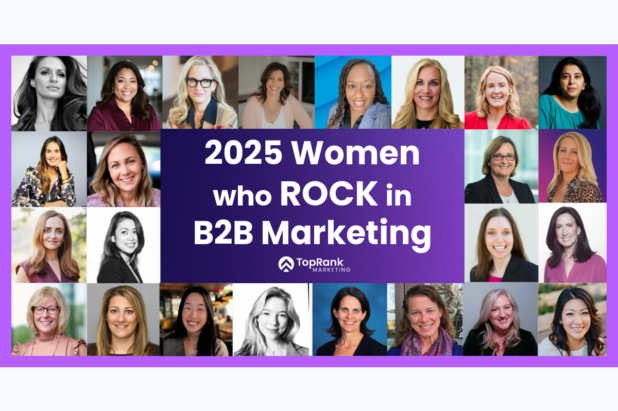
Nothing sends up red flags faster than someone saying “Trust me.” It’s the same as “Honestly, I swear, it’s the truth!” You can’t build trust by demanding it — the more you talk about it, the less credible you sound.
Building trust takes continued action over time. It’s always a work in progress and it’s incredibly fragile.
Brands need to work on building that credibility with their audiences. In the 2020 Edelman Trust Barometer report, 53% of respondents ranked trust as a deciding factor in purchase decisions, second only to affordability. The report also found trust is a crucial indicator for customer loyalty, with half of respondents saying it played a major role.
But here’s the challenge: less than half of those surveyed — in 11 countries across the globe — said they trust major brands.
As content marketers, we should be helping build that relationship. And there’s good news on that front! Advertisers are no longer the least trusted source of information.
We’re now the second least trusted. Politicians are the one institution with less credibility.
Okay, enough doom and gloom. Here are six ways that B2B content marketing can build trust with your buyers.
6 Trust Builders through B2B Content Marketing
I’ve divided this list into two sections. The first three are table stakes — these are things that brands should already be doing, that customers expect and demand. The second three are ways to kick that trust up to the next level.
Base Level Trust Builders
1 — Honesty
You can’t get more basic in building trust than not lying to potential buyers. Your content should never attempt to mislead or misdirect your audience. This includes claims about your solution, or your competitor’s solution.
I would extend the definition beyond product, though, to the quality of the content itself. If you promise practical, valuable content but deliver a sales pitch, that’s dishonest.
2 — Transparency
It’s not just what you say that can damage trust; it’s also what you don’t say. For a business, that could mean using consumer data without their express consent. It can be as major as covering up a scandal, or as small as deleting negative reviews.
In the Information Age, anything hidden will eventually be brought to light. If your business is lacking transparency, it will be found out — and trust will take a serious nose dive.
3 — Consistency
Customer experience expert Shep Hyken says the secret to creating a raving fan is to consistently exceed expectations. It’s the “consistently” part that makes all the difference. For B2B content, that means establishing a regular cadence for publishing high-quality content and continually following through.
It’s much better to publish one amazing content piece a month than four mediocre ones. Set your content calendar to a level of commitment that combines consistency and quality.
“It’s much better to publish one amazing content piece a month than four mediocre ones. Set your content calendar to a level of commitment that combines consistency and quality.” — Joshua Nite @NiteWrites Share on XNext Level Trust Builders
4 — Utility
We all know that content needs to have value for your audience. That’s a given; you’re asking for their attention, so you should reward it. By ‘utility’ I mean offering value that goes beyond the narrow context of your brand’s solution.
Great B2B content can help your buyer impress their boss, do better at their job, or get that next promotion. If you consider the broader context of their lives beyond their interaction with your solution, you can find all sorts of opportunities to help.
Even if your content isn’t pointing people straight at your “request a demo” link, if it has true utility, it will build trust with the brand. That’s the kind of long-term relationship building that absolutely serves a business purpose.
5 — Sincerity
Do you care about the people you’re marketing to? That may feel like a loaded question. Of course we care about these folks, right? We’re practicing empathy and building personas and personalizing content and we’re doing it all for them.
But do you sincerely want these people to succeed, to be happy and content? Do you genuinely believe your content will help people achieve these goals? If you can say ‘yes’ to the above, that decency and sincerity will come shining through in your content.
6 — Purpose
A few more statistics to round things out: In the Edelmant Trust Barometer survey, 60 percent of consumers in the U.S. say they would buy or boycott based on whether a brand speaks out on racial injustice. Nearly half said they care about a brand’s impact on the environment.
Utility and sincerity in content are about seeing the audience in the broader context of their lives. Purpose is about seeing your brand in the broader context of the world we live in. What is your brand doing to make the world a better place? How can your content support and amplify those efforts?
Marketers are natural-born storytellers. We can use that superpower to tell stories that desperately need to be heard. For a quick source of inspiration, check out Lush’s Instagram profile. Right next to playlists about their bath and body products are lists tagged “Take Action” and “Decolonize.” Their purpose is an integral part of their brand. This approach may alienate a few potential buyers, but it inspires a community of raving fans who share Lush’s values.
Don’t Let Your Trust Fall
Trust is one of the key ways your brand can differentiate itself to win business, build relationships, and create raving fans. But you can’t simply ask for that trust: It has to be continually earned. Content marketers are in the best position to do that work — if we choose to take up the challenge.
Want to learn more? Check out these content marketing insights from the latest CMI benchmark report.



